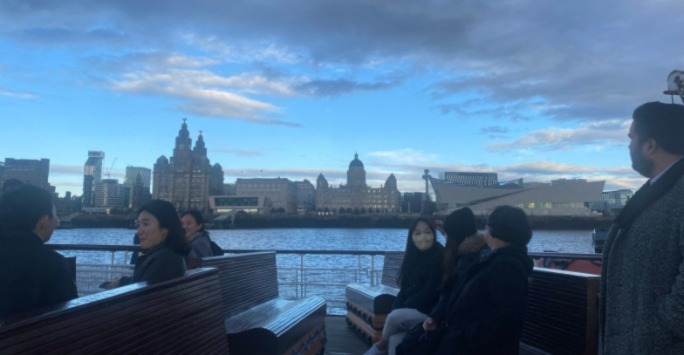Transnational Memory Practices in the UK and South Korea - Ethics, Evaluation and Learning in Digital Exhibitions
Led by Dr Tamara West, alongside co-investigators Dr Kerry Wilson and Dr Nayun Jang, the project aims to explore the role of digital exhibitions in memory practices, contested histories, national identities, and postcolonial pasts.
Background
Transnational Memory Practices in the UK and South Korea - Ethics, Evaluation and Learning in Digital Exhibitions is an ESRC funded networking grant involving the University of Sogang, the University of Liverpool and Liverpool John Moores University with research partners National Museums Liverpool. The project brings together academic researchers and arts and cultural sector practitioners from South Korea and the UK to explore ways in which digital exhibitions and associated materials addressing complex memory practices, contested or marginalised histories, national identities, and postcolonial pasts function as catalysts for learning and critical discussion within local, national, and transnational communities.
Partnerships
The project is led by Dr Tamara West (University of Liverpool), with Co-I Dr Kerry Wilson (Liverpool John Moores University) and International Co-I Dr Nayun Jang (University of Sogang Seoul). Project Research Partners are National Museums Liverpool and the Critical Global Studies Institute at the University of Sogang, Seoul. Additionally, the project convened a research network drawn from across the Universities of Liverpool, Liverpool John Moores, Sogang, and across several cultural partners.
International workshops
The Memory Practices in the UK and South Korea networking project successfully planned and hosted two international cross sectoral workshops on the subject of difficult heritage in museums and cultural sites and the complexities and possibilities of online and offline representation. These were the main purpose and output of the research network.
First workshop
The first workshop took place in Seoul, South Korea and saw academics from the University of Liverpool, Liverpool John Moores and two representatives from the project’s cultural sector research partner National Museums Liverpool travel to Seoul to join academics, practitioners, and cultural organisations for a mix of academic workshops and fieldtrips hosted by cultural sites and organisations in the city and focused on both official and grass roots community responses to complex memory/heritage and the use of digital media to explore these. The National Museum of Korean Contemporary History hosted the network members for an afternoon, while the UK project leads and two National Museum Liverpool network members gave an invited evening talk at the Museum relating to difficult and contested heritage, attended by academics and cultural organisations in the city and which led to further discussions on different approaches and expectations, including the difficulties of co-creation and engagement practices.
Second workshop
The second workshop was hosted in Liverpool and involved a full day of discussions at the research partners National Museums Liverpool International Slavery Museum, a day of fieldtrips focused around the city’s transatlantic slavery history, and a day of research exchanges at Liverpool John Moores University. This including a research student specific session involving exchanges between students from Seoul and Liverpool. The research network was expanded to include new members and plans for future collaborations were discussed.
